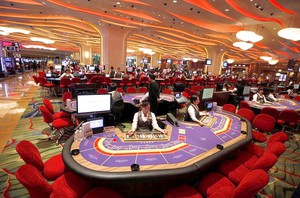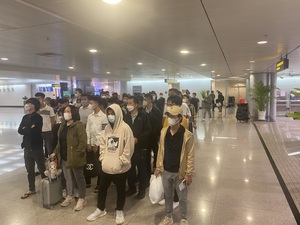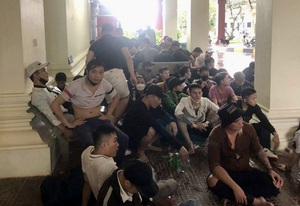
Experts back loosening casino laws for Vietnamese citizens to curb overseas gambling losses
Economists have voiced their strong support for a proposal to let Vietnamese citizens play at all domestic casinos, arguing it could keep gambling money from flowing abroad, boost state revenue, and strengthen social welfare funding.
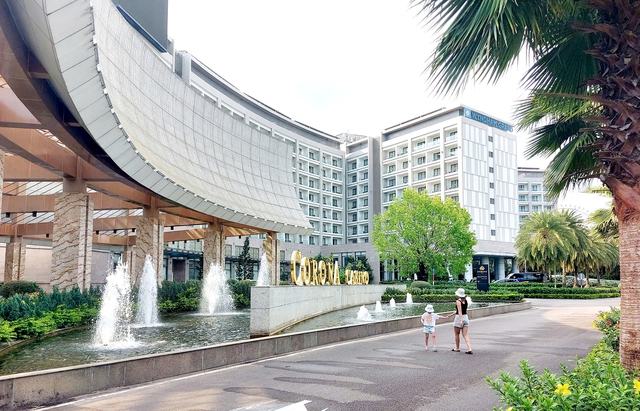
Corona Casino in Phu Quoc, now a special zone administered by An Giang Province, southern Vietnam, is the only casino in the country currently open to locals under a Politburo pilot scheme. Photo: C. Cong / Tuoi Tre
The Ministry of Finance recently included the proposal in a draft decree on casino business operations.
The move is aimed at legalizing an activity that many Vietnamese citizens currently engage in illegally, either at home or abroad.
As per current rules under a Politburo pilot program approved in 2016, Vietnamese citizens are permitted to play only at Corona Casino in Phu Quoc, now a special zone administered by southern An Giang Province, while all other casinos in the country remain off-limits to locals.
According to economic experts, the current restriction has been largely ineffective.
Thousands of Vietnamese cross into Cambodia daily, where casinos line the border to cater to the Vietnamese gamblers.
Others gamble in Singapore, Macau, and Hong Kong.
Domestically-located casinos like Do Son, Loi Lai, Hong Van, Hoang Gia, Ariso, Crown, Nam Hoi An, and Ho Tram all see Vietnamese players despite regulations banning their entry.
Illegal online gambling also remains widespread, with police cracking down trillion-VND money laundering and betting rings, including a massive operation busted in Nghe An Province, north-central Vietnam in April. [VND1 trillion = US$38 million]
Dinh Xuan Thao, former head of the former Institute for Legislative Research under the country’s law-making National Assembly, told Tuoi Tre (Youth) newspaper that the ban has simply driven locals overseas.
“Casinos are already licensed nationwide, yet Vietnamese are barred from them. This is inconsistent. Expanding access would allow for better oversight," Thao said.
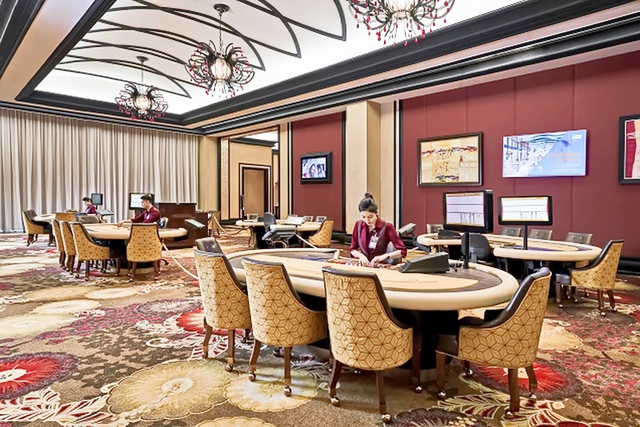
The Ho Tram integrated resort and casino in Ho Tram Commune, Ho Chi Minh City. Photo: H.K.
Supporters argued that legalization would make it easier to monitor players’ income and spending, collect taxes and fees, and limit unlawful online gambling and underground betting, which have fueled multi-million-dollar money laundering cases in recent years.
Economist Ha Ton Vinh said Vietnam has three main casino types: gaming rooms in four- to five-star star hotels, small-scale casinos, and large integrated resorts.
Vinh urged allowing Vietnamese into all domestic casinos to ensure fair business competition and learning from regional models in Macau, Singapore, the Philippines, and Malaysia.
To address potential social issues, experts have proposed specific regulations.
Associate Professor Dinh Trong Thinh suggested setting entry caps on cash and requiring proof of income to prevent problem gambling.
Nguyen Quang Dong, head of the Institute for Policy Studies and Media Development, stressed that gambling is a personal choice for adults but he recommended keeping casinos in restricted-access areas.
Economist Vinh proposed a nationwide three- to five-year pilot for locals, coupled with the establishment of a dedicated casino regulatory body under the Ministry of Finance to curb revenue loss, tax evasion, and criminal activities.
Pursuant to current rules, Vietnamese citizens are allowed to only gamble at the Phu Quoc and Van Don casinos, with the latter still pending operation, and must meet strict conditions:
- At least 21 years old with full legal capacity under Vietnamese law
- Showing proof of a regular monthly income of at least VND10 million ($380) or personal income tax payment at the third tier or higher
- Entry fees of VND1 million ($38) for 24 consecutive hours or VND25 million ($952) per month
- Not barred from entering casinos by close family members’ request or self-exclusion
- Using only Vietnamese dong to exchange for casino tokens, which can be converted back into Vietnamese dong if unused or upon winning
Under the draft decree, Vietnamese players must meet the following rules:
- At least 21 years old with full legal capacity under Vietnamese law
- Entry fees of VND2.5 million ($95) for 24 consecutive hours or VND50 million ($1,905) per month
- Not barred from entering casinos by close family members’ request or self-exclusion
- Using only Vietnamese dong to exchange for casino tokens, which can be converted back into Vietnamese dong if unused or upon winning.
Vietnam currently has nine licensed casinos, including six small-scale ones in Hai Phong City, Quang Ninh Province, Lao Cai Province, and Da Nang City, plus three large integrated resorts in Da Nang, Ho Chi Minh City, and An Giang.
Minh Duy - Bao Ngoc - Khanh Quynh / Tuoi Tre News
